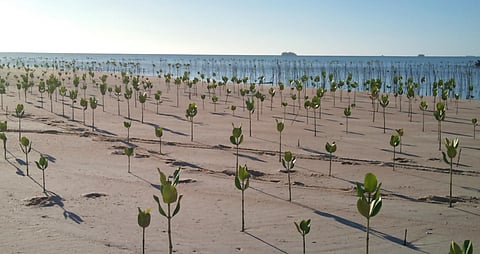Boosting the Capacity of Least Developed Countries to Implement National Adaptation Plans
The UN Climate Change Secretariat is boosting the capacity of the world’s poorest and most vulnerable countries to adapt to the inevitable impacts of climate change, which include ever more severe and more frequent floods, storms and droughts.
As the impacts of climate change accelerate, National Adaptation Plans (NAPs) for the world’s 46 Least Developed countries (LDCs) are required to protect lives and livelihoods.
These countries are home to around 1 billion people, mostly in Sub-Saharan Africa. Whilst having contributed minimally to greenhouse gas emissions, the countries have suffered much of the devastation caused by climate-related disasters over the last 50 years.
Only 18 of the planet’s least developed countries have a NAP so far. To help them and small island developing states (SIDS) with requests for technical help, UN Climate Change leads the UN4NAPs partnership, which pulls together this help from across the entire UN system, processing 75 requests for technical assistance last year alone.
UN-Habitat Launches its World Cities Report 2022
But one of the biggest hurdles LDCs face in both formulating and implementing their NAPs is accessing funding. Addressing a major LDC conference in Qatar this week, UN Climate Change Executive Secretary Simon Stiell urged progress both on the part of countries needing to access to finance for adaptation, and donor countries.
“Adaptation funding for the poorest and most vulnerable nations is not an expense: it is an investment in the safety and well-being of millions of people. National Adaptation Plans can help countries access necessary funding for adaptation actions. But we need to pick up the pace,” he said.
UN Climate Change helps LDCs implement their adaptation plans
Another major initiative under the UNFCCC to boost the planned adaptation efforts of the most vulnerable nations, the Least Developed Countries Expert Group (LEG) and the UN Climate Change secretariat convened a meeting in late February of all of Africa’s 33 LDCs plus Haiti to speed up the process of identifying their priority adaptation projects and getting these ready for funding applications.
The NAP project proposal writing workshop for African LDCs yielded 30 new project ideas in various stages of development.
These included making agricultural and food systems more resilient to climate change impacts in a wide range of sectors and contexts; putting in place systems for better decision-making in the face of climate change challenges; and improving water and sanitation services to boost adaptive capacity.
These ideas were distilled from the priorities in the individual countries’ national adaptation plans or adaptation strategies, adding to the 50 projects that emerged from last year’s writing workshops.
Many of the ideas have been shaped into project proposals and concept notes, ready to be submitted to the major funds for approval.
Scovia Akot, Climate Change Officer – Adaptation, Ministry of Water and Environment, Uganda said: “We've been saying for a long time that accessing financing is very difficult.
"But for this particular NAP writing workshop, you can see that it's a very open window for the countries to walk the journey with the agencies that are supposed to give us the funding, which should, we hope, make it easier for us to access support for our projects."
The NAP writing workshops have been an effective way for the LEG to provide direct support to LDCs and ensure increased country-ownership in developing project proposals.
The LEG programme of work itself is a component in a package of support for LDCs that has been ongoing for decades under the UNFCCC, in this case to help overcome difficulties they face in accessing available funding.
To keep the momentum going, the LEG and partners will conduct further activities that align with countries’ adaptation roadmaps.
The includes communicating project ideas to the Green Climate Fund, Global Environment Facility and Adaptation Fund for feedback on viability, ensuring the completeness of information in project ideas, and communicating progress on project ideas.
The NAP project proposal writing workshop for Asia Pacific LDCs, will be held in Laos, in July.
Not all available funds are being accessed
The Least Developed Countries Fund (LDCF) stands to help countries implement their national adaptation plans and strategies. The fund has so far provided grant funding of over USD 1.7 billion to the LDCs.
Accelerating the formulation and implementation of NAPs in LDCs was a theme discussed at a major LDC conference in Doha last week, where the spotlight is trained on how to accelerate sustainable development in LDCs and to tap their full potential to drive progress on the road to prosperity.
UN Climate Change head Simon Stiell cautioned that not available funds are being accessed and urged LDCs to “step up, knock on the LDCF’s door and ask for support” for their National Adaptation Funds.
At the same time, he urged the Global Environment Facility (GEF), which manages the fund, to find ways to provide adequate, scaled-up and expedited access to the resources that LDCs need to both formulate and implement NAPs.
Read More: NASA Launches International Mission to Survey Earth’s Water


